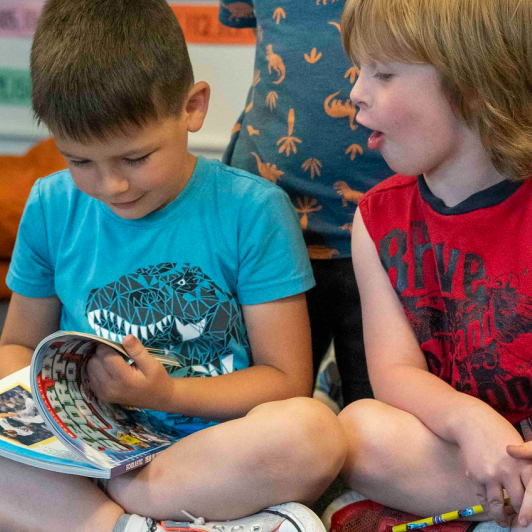Introduction to Emergent Literacy Development
Literacy development begins at birth, and literacy learning happens at home and in a child’s community. Families and caregivers are children’s first teachers and storytellers.
Children bring rich knowledge, values and experiences with them to school from these early interactions, which are the foundation for building literacy skills.

Learn about Emergent Literacy Development


Educator Reflection Questions to Develop Understanding
- Why is it important to understand emergent literacy development?
- What about emergent literacy development relates to your students?
- How might knowledge of emergent literacy development influence the planning of literacy instruction?
Implement Evidence-Based Emergent Literacy Practices
- Support early literacy with step-by-step instructions on shared reading practice.
- Encourage emergent literacy with ideas for building knowledge of letters and sounds.
- Learn how to build vocabulary and language for literacy development.
- See research-based resources to support early literacy to learn more about promising programs and researched-based practices.
- Find all the necessary guidance and materials to run your own professional learning community on emergent literacy.

